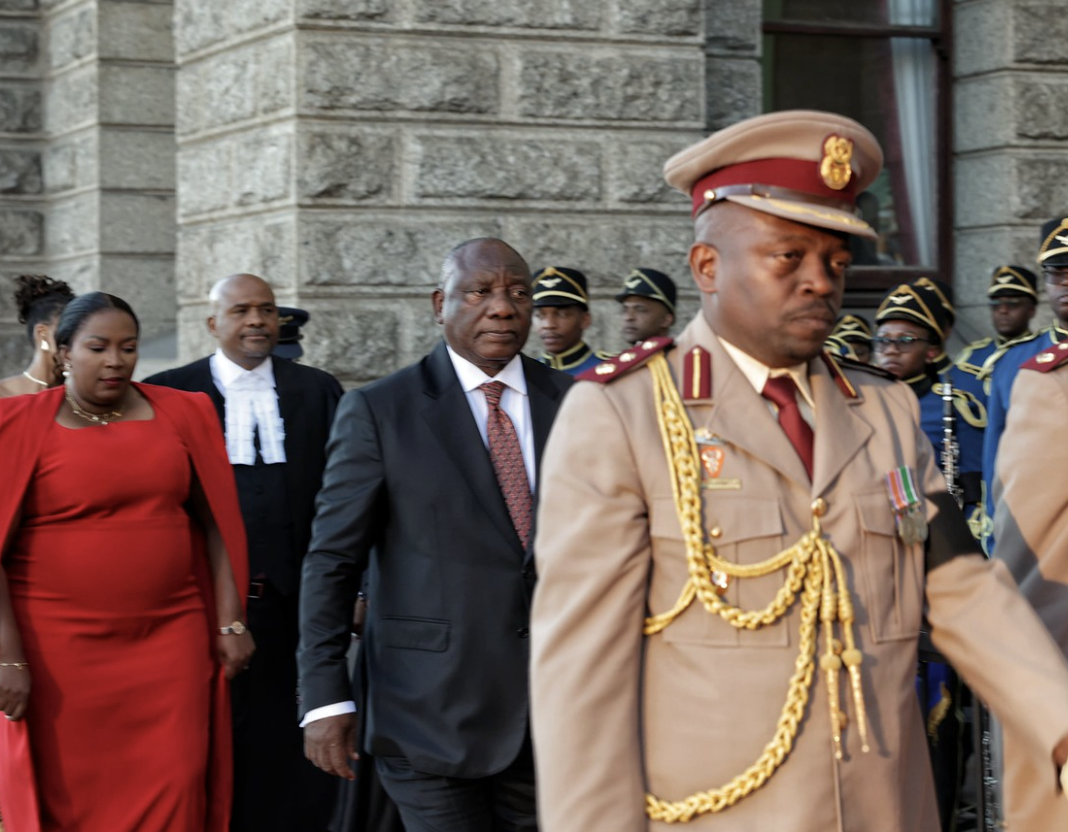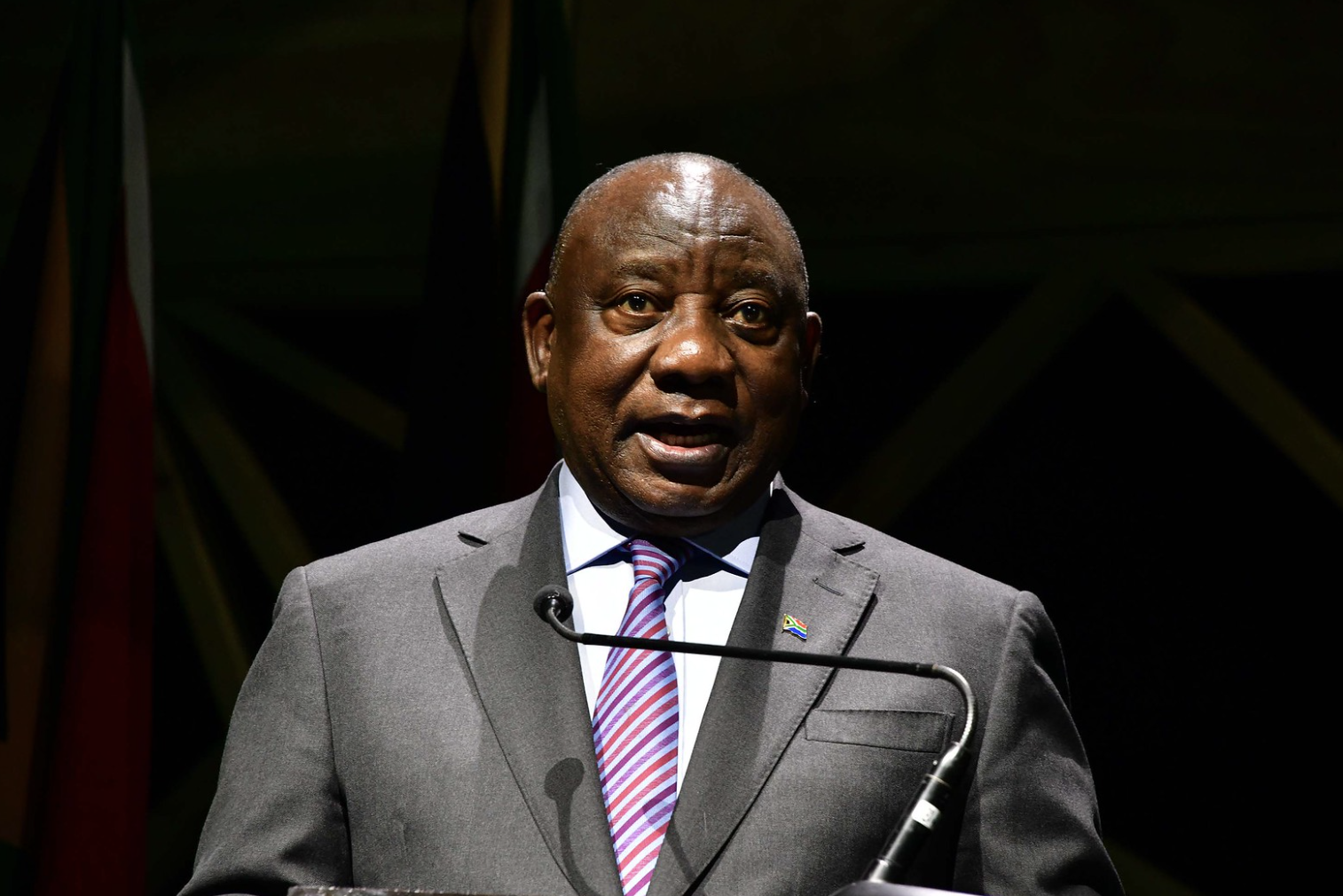News
Avoidable, Predictable, Humiliating, Costly
Both these actions – the White House response and the loss of SANDF soldiers in the Congo – were avoidable and predictable, and especially humiliating given South Africa’s African foreign policy focus. They speak to a government infused with a particular sense of self-righteousness and deaf to the loud warnings about the consequences of its actions.

Former Director, The Brenthurst Foundation

Former Research Director, The Brenthurst Foundation

‘So, Blair keep your England, and let me keep my Zimbabwe,’ said Robert Mugabe in September 2002. ‘Let our Africans come first in the development of Africa. Not as puppets, not as beggars but as a sovereign people.’
The Zimbabwean leader was responding to British criticism over the land invasions that dispossessed white farmers in favour, mostly, of political lackeys of the ruling ZANU-PF. ‘We shall not deprive the white farmers of land completely. Every one of them is entitled to at least one farm,’ he told the World Conference on Sustainable Development. ‘But they would want to continue to have more than one farm. 15, 20, 35 farms, one person. We don't mind having and bearing sanctions banning us from Europe.’
And so Zimbabwe’s economic implosion hastened, shedding value as the politics of land distribution propped up Mugabe’s power.
‘South Africa is our land,’ said Cyril Ramaphosa in 2018. “South Africa belongs to all the people who live here in South Africa. It does not belong to Donald Trump. He can keep his America. … He is even worse. When I meet him I will tell him. I will say you, Donald Trump, you are even worse because your forebears came to America, they found the native, the indigenous Americans, they wiped them out, they killed nearly all of them … So Donald Trump must leave us alone.’
At the State of the Nation address this year, he had another message for Trump: ‘We will not be bullied’ in obvious reference to Washington’s cut-back in aid to South Africa. He added, towards the end of his sonorous speech, high on promises and low on record, ’South Africa continues to stand in solidarity with the people of Palestine, who, having endured decades of illegal occupation, are now experiencing indescribable suffering. South Africa has acted in accordance with its obligations under the Genocide Convention by instituting proceedings against Israel at the International Court of Justice.’
This was ill-advised - if he is advised at all - a finger in the eye of a White House intent on redressing what it perceives as foreign policy wrongs and slights.
What followed, the day after SONA, was a response entitled ‘Addressing Egregious Actions of the Republic of South Africa’ entirely predictable from this White House, cutting all further aid to South Africa and offering to resettle dispossessed Afrikaners.
It’s going to be a long road back in the relationship with the world’s largest economy.
These moves have been greeted with a contrasting combination of lefty shock and dismay that donors could actually call a country’s bluff, and reactionary glee that it has happened.
Hopefully, it offers an opportunity for South Africa’s sober minds to course correct off a Zimbabwean trajectory. For all of South Africa’s differences with Zimbabwe (economic size and sophistication, and a white regime more amenable to sharing than its stubbornly racist Rhodesian counterpart), there are similarities, principally in the style of noxious and corrupt governance adopted by the elite, intent on gorging at the country’s cost and either oblivious to the needs of the people or incapable of doing much about them. And there are more recent parallels, including how to keep a Government of National Unity intact and focused rather than a means of softening the fall of the liberation movement from power.
Cyril’s (and the GNU’s) job has just been made a whole lot harder.
There was another parallel in the President’s SONA speech which was even more predictable and avoidable and more costly.
The week before SONA 14 South African peacekeepers had been killed in an attack by M23 rebels (for which read Rwanda) on their garrison near Goma in the eastern Congo. The President started the SONA by reading out the names of the 14. He spent time spelling out the theory of South African foreign policy, but not its failure in practice. ‘Africa remains at the centre of our foreign policy, he stated. ‘We continue to work to strengthen the African Union to support the achievement of peace, development and economic integration on the continent. We know that our future prosperity is inextricably bound to the prosperity of the African continent. For Africa to thrive,’ he read, ‘we must silence the guns on the continent.’
But he did not take responsibility for the failure. Neither did he make any attempt to explain why and how the Congo debacle had happened or why he, as Commander in Chief, had put these troops in obvious harm’s way, or how this could and should have been avoided.
The attack on the South African peacekeepers in the eastern Congo was warned about. The authorities were made aware of the battle plans of the Rwandese, which was ignored either because of hubris or more sinister, vested interests of commercial information providers. It’s a well-telegraphed strategic failure, however, since the SANDF has been on a long descent from a warfare to a welfare agency, lacking the training, youthful age cohort and logistics to be anything other than a padded empty envelope, a pathetic waste of taxpayer’s resources.
Poorly equipped, poorly supported and without air cover and a plan, despite reportedly acquitting themselves well on the ground, the SANDF garrison had no chance against a highly motivated enemy fighting in its backyard.
While the dust was still settling from the attacks, and South African blood seeped into the rich Congolese soil, the Chiefs of the Army (who commanded these troops), Air Force (who had no aircraft to support them), and several other senior officers were transported to a golf tournament in Centurion where helicopters were on parade.

But perhaps the most humiliating moment came when the Chief of the SANDF, General Rudzani Maphwanya, was summoned to appear to explain all to Parliament’s defence committee on 4 February along with the Minister of Defence Angie Motshekga and her deputy.
Between paying homage to the house (‘I have been always open to the portfolio committee on defence and the joint standing committee on defence’, he said, apparently without irony and forgetting who was really in charge) and bumbling explanations notable only for endlessly tendentious platitudes (‘security is our collective responsibility’), the General answered his own question as to when the SANDF troops would be returning home: ‘Tomorrow’ he replied emphatically. The absence of suitable air transport and Rwandan obduracy meant that they finally would be transported to Entebbeto be flown home during the week after ‘tomorrow’.
Presumably, the golf game started on time, and the guests were well-fed. They certainly looked it.
Both these actions – the White House response and the loss of SANDF soldiers in the Congo – were avoidable and predictable, and especially humiliating given South Africa’s African foreign policy focus. They speak to a government infused with a particular sense of self-righteousness and deaf to the loud warnings about the consequences of its actions.
It turns out that parroting Robert Mugabe, Russia and Hamas does not go down well with our major trading partners – not just the US, but also Europe and the broader democratic world. Let’s hope this is not a deliberate alienation of the West to drive the country into the arms of the autocrats the dwindling ANC admires.
For the ANC – which deliberately sought to remain in charge of foreign policy in the GNU – faces two possible but vastly different responses to Trump. It can soften its approach, which is unlikely, not least since the liberation movement fundamentally lacks humility in thinking it as least the US’ equal. Such moves, if it was to choose rapprochement, could include backtracking on the ICJ case, replacing SA’s ambassador to Washington, and lowering overall the anti-US tone. It should do its utmost of course to avoid the implementation of US tariffs on SA goods as further punishment.
Or the ANC can stubbornly rhetorically harden itself to American pressure. This can only create more pain for SA and legitimise anti-ANC sentiment, both domestically and abroad. It doesn’t really matter if what Trump has been briefed on is 100% accurate. What matters is he believes what he believes and is taking action.
If the latter route, the cost, as ever, will not be borne by SA’s leadership, which will creep from behind high walls in cavalcades to slip and slide its away through international gatherings mouthing aspirations without substance, but by people, from the Congo to the Cape.

